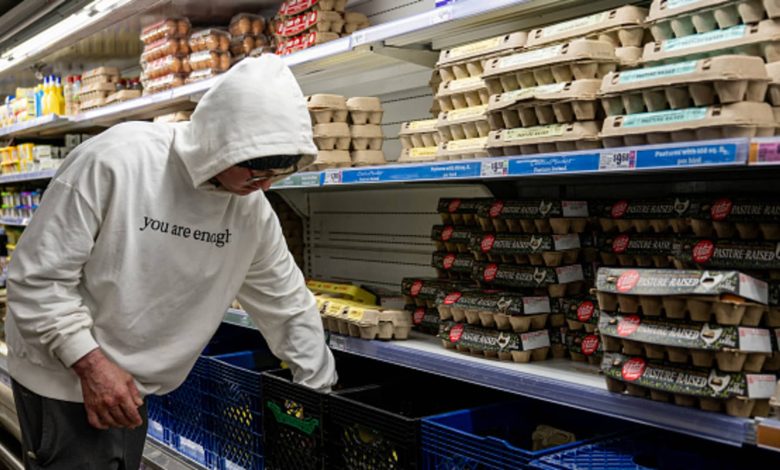PPI report January 2025: Prices rose 0.4%

A gauge of wholesale prices rose more than expected in January, though some details of the report indicated that pipeline inflation pressures are easing.
The producer price index, which measures what producers get for their goods and services, increased by a seasonally adjusted 0.4% on the month, compared with the Dow Jones estimate for 0.3%, the Bureau of Labor Statistics reported Thursday.
Excluding food and energy, the core PPI was up 0.3%, in line with the forecast.
Stock market futures moved higher following the release while Treasury yields were sharply lower, despite the higher-than-expected headline number. Wall Street strategists cited details of the report that suggested a slightly more benign inflation picture.
In particular, some costs related to health care showed easing — physician care, for instance, fell 0.5%. Also, domestic airfares declined by 0.3% and brokerage services prices were off 2.2%.
Over the past year, the all-items PPI increased 3.5%, well ahead of the central bank’s objective. Futures pricing indicates the market now does not expect the Fed to lower its benchmark interest rate again until October.
While the producer and consumer price index releases are widely cited inflation gauges, they are not the principal ones the Fed uses. Rather, the central bank focuses on the personal consumption expenditures prices index, which the Commerce Department will release later in February. The PPI and CPI releases do feed into that measure.
Fed Chair Jerome Powell on Wednesday noted the Fed’s greater focus on the PCE measure, while telling the House Financial Services Committee that “we’re not quite there yet” on inflation though he cited “great progress” made so far.
Putting the data together, the core PCE measure likely will show a 0.22% increase, down from 0.45% in December, according to Citigroup estimates. That would push the annual inflation rate down to 2.5%, the firm said.
The PPI release comes the day after the BLS reported that the consumer price index rose 0.5% on the month, putting the annual inflation rate at 3% and well out of reach of the Fed’s 2% long-run goal.
Together, the reports are pushing back expectations for a rate cut until the second half of the year, though inflation data can be volatile and the outlook could change depending on what subsequent months show.
“Wholesale price growth came in slightly higher than expected for January, and the read for December was adjusted upward,” said Elizabeth Renter, senior economist at personal finance site NerdWallet. “In other words, inflation at the producer level remains high, and one concern is that this inflation could ultimately be passed along to consumers.”
Revisions to the December numbers also complicated the inflation picture, with the gain now put at 0.5%, compared with the 0.2% increase previously reported.
In January, producer prices for services increased 0.3% while goods rose 0.6%. Services prices were led by a 5.7% jump in the traveler accommodation services category, which the BLS said accounted for more than one-third of the gain.
On the goods side, a 10.4% surge in diesel fuel costs was a significant factor. The PPI data also reflected the massive jump in egg prices as farmers destroy millions of chickens to prevent the spread of avian flu. Eggs for fresh use exploded 44% higher on the month and were up 186.4% from a year ago.
In other economic news Thursday, the Labor Department reported that initial filings for unemployment claims changed little for the week ended Feb. 8. Claims totaled 213,000, a decrease of 7,000 from the prior period and close to the 215,000 estimate. Continuing claims, which run a week behind, fell to 1.85 million, down 36,000.



